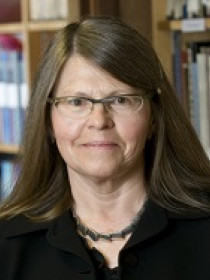Connect with Cecilia
About Cecilia
Ridgeway studies how gender and race create subtle barriers for people in social interactions that affect their efforts to get ahead in life. These subtle biases in judgments about who is able accumulate to create gender and race inequality in the workforce and elsewhere. More generally, she studies how social hierarchies of prominence and influence in everyday social encounters shape inequality in the U. S. and shape social beliefs about how some social groups are higher status than others. Her civic engagements have been with feminist organizations and women’s groups, Democratic Party politics, and the Sierra Club.
Contributions
How Gender Inequality Persists in the Modern World
In the News
Publications
Discusses how there are “gateways” for advancement in U. S. institutions like schools, workplaces, and health organizations; and how class-based rules for interaction trigger subtle status biases against working class people in their encounters with institutional officials. These biases make it more difficult for working class individuals to achieve positive life outcomes than it is for otherwise similar middle class people.
Identifies general processes through which gender as a principle of inequality rewrites itself into new forms of social and economic organization. People confront uncertain circumstances with gender beliefs that are more traditional than those circumstances. They implicitly draw on the too-convenient cultural frame of gender to help organize new ways of doing things, thereby re-inscribing tailing gender stereotypes into the new activities, procedures, and forms of organizations.
